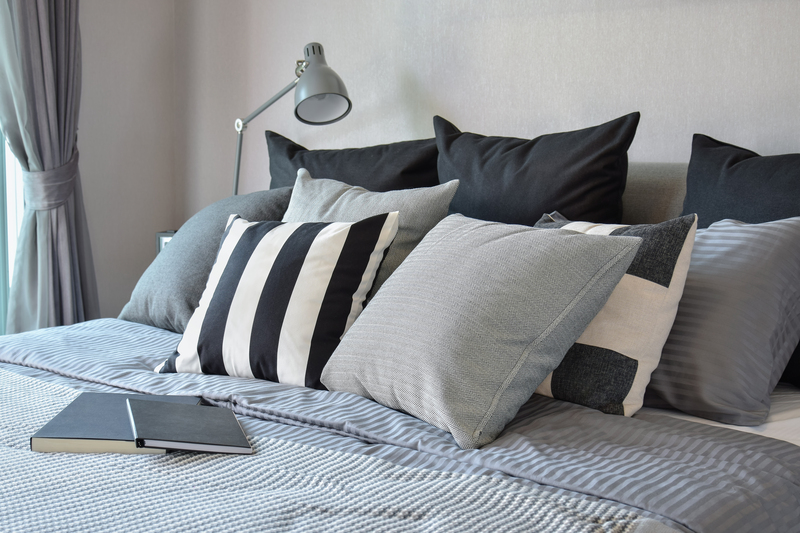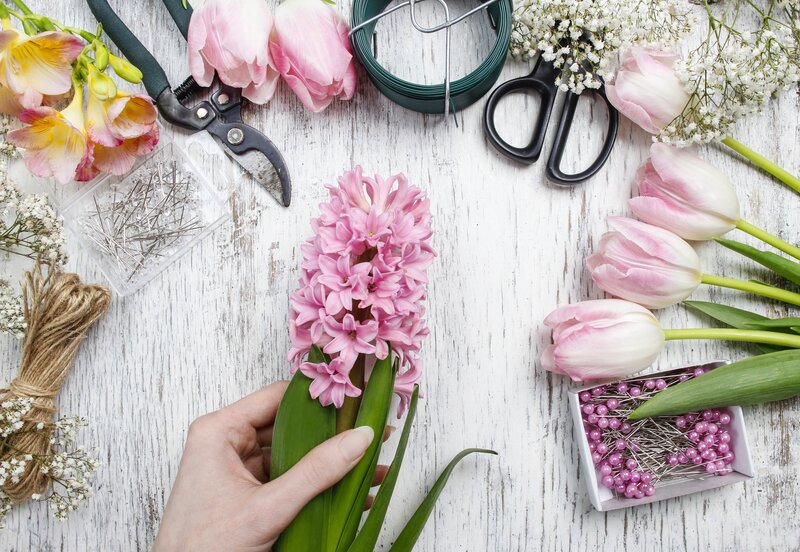Embrace Simplicity: The Art of Decluttering and Minimalism
In a world that often glorifies consumerism and excess, embracing simplicity through decluttering and minimalism has emerged as a transformative lifestyle choice. This comprehensive guide delves deep into the philosophy, benefits, and practical approaches to shedding the unnecessary and empowering yourself with less. Discover why the minimalist movement is so much more than a trend--it's a way forward towards mindful living and lasting happiness.

What is Minimalism and Decluttering?
Minimalism is more than just a design aesthetic; it's a conscious choice to focus on what truly matters. At its core, minimalism is about intent. It involves removing the non-essential physical and mental clutter from your life to make space for what enriches you most.
- Decluttering refers to the process of removing physical items that no longer serve a meaningful purpose.
- Minimalism encompasses a broader philosophy of simplifying your possessions, commitments, and even thoughts.
By embracing these concepts, you not only give yourself the gift of space but also enhance your overall well-being, focus, and clarity.
Why Embrace Simplicity?
The Modern Problem of "Too Much"
Our homes are fuller than ever. Research suggests the average American home contains around 300,000 items. This avalanche of "stuff" isn't just a storage problem; it affects our productivity, mental health, and sense of calm.
- Clutter can significantly increase your stress and anxiety levels.
- Too many possessions often lead to wasted time, energy, and money.
- Excess creates distractions and diminishes the joy found in everyday life.
The Minimalist Solution
Minimalist living is all about intentionality. By reducing your possessions and commitments, you make room for what's truly important. Minimalism leads to:
- More time and freedom to pursue your passions and connect with loved ones.
- A healthier, more organized home environment.
- Lesser environmental impact and increased financial savings.
- Greater mindfulness in daily choices.
In short, simplifying your life can pave the way for genuine contentment and sustainable happiness.
The Psychological Benefits of Decluttering
Research confirms that cluttered environments can lead to stress, reduced productivity, and even unhealthy eating habits. In contrast, clean and minimal spaces encourage:
- Peace of mind: Less mess means less visual and mental distraction.
- Improved focus: A streamlined space increases your ability to concentrate.
- Lower anxiety: An organized home fosters a sense of control and serenity.
Decluttering for Mental Clarity
Minimalism isn't just about living with less stuff; it's about removing the mental weight of having too much. Each item you own uses a small fraction of your mental bandwidth--whether you're using it or not. Letting go frees up that energy for more meaningful pursuits.
Practical Steps to Start Decluttering
1. Prepare for Your Decluttering Journey
*Begin with a vision.* What do you want your space--and your life--to feel like? Setting an intention helps guide your decisions and keeps you motivated. Consider what areas of your home cause the most stress, and start there.
- Set realistic goals: Work in small sections, like a single drawer or shelf.
- Gather supplies: Boxes for donating, recycling, and trash make organizing easier.
- Commit to consistency: Even 20 minutes a day makes a difference.
2. The Decluttering Process
- Take everything out. Empty shelves, drawers, or closets.
- Assess each item. Ask: Does this bring value or joy? Have I used it in the last year?
- Sort: Make quick decisions--keep, donate, recycle, or toss.
- Put back only what's needed. Organize remaining items thoughtfully and attractively.
3. Handling Sentimental Items
Sentimental objects are the toughest to minimize. But remember, memories aren't in the possessions themselves, but in the experiences. Keep only what is truly precious or consider taking photos to preserve special memories without occupying physical space.
Minimalism in Everyday Life
Minimalist Home Design
A minimalist home doesn't mean sterile or empty--it means intentional design. Quality replaces quantity. Here are some key principles:
- Choose multipurpose furniture.
- Use a neutral color palette with pops of accent color.
- Keep surfaces clear.
- Display only what you love.
Minimalism in Digital Life
Our digital spaces can be as cluttered as our physical ones. To digitally declutter:
- Organize files and delete what you don't need.
- Unsubscribe from unnecessary emails.
- Limit apps and notifications on your devices.
- Embrace simplified productivity tools.
Minimalist Fashion: The Capsule Wardrobe
A capsule wardrobe is a small collection of versatile, high-quality clothing you love to wear. This makes dressing each day simple, reduces decision fatigue, and focuses your style.
- Choose timeless pieces in complementary colors.
- Let go of clothes that don't fit or you haven't worn in the last year.
- Invest in quality over quantity.
Intentional Consumption
Changing your buying habits is essential to prevent clutter from returning. Before making a purchase, ask yourself:
- Do I truly need this, or is it an impulse?
- Does this item add real value to my life?
- What will I let go of to make space for this?
The Environmental Impact of Minimalism
Embracing minimalistic living also means a healthier planet. Manufacturing, shipping, and discarding excess goods have adverse environmental effects. By buying less and choosing sustainable, high-quality items, you reduce waste and your carbon footprint.
- Support ethical, eco-friendly brands.
- Repurpose and recycle where possible.
- Share, borrow or rent items you rarely use.
Your personal shift to simplified living can inspire others and create a positive ripple effect on communities and the environment.
Overcoming Barriers to a Simpler Life
Emotional Attachments
Letting go of possessions can be emotionally challenging. It's important to acknowledge your feelings and give yourself compassion during the process. Remember, freedom and clarity often await on the other side of letting go.
Social and Lifestyle Pressures
Society often equates success with material abundance. However, research and countless minimalist journeys prove that happiness comes from meaning and connection, not things. Choosing a minimalist lifestyle may place you in the minority, but the rewards of authenticity and self-knowledge are immeasurable.
Perfectionism and Fear of Regret
There's no such thing as a perfect minimalist. The goal is not to own a set number of items or create a picture-perfect home, but to live with intention and contentment. If you make a mistake and miss something, give yourself grace and learn from the experience.
Inspirational Minimalism Success Stories
Many individuals and families have found renewed happiness through decluttering and minimalist living. From young professionals downsizing to retirees rediscovering passion in smaller homes, the stories are as varied as they are inspiring.
- The 333 Project: Living with only 33 items of clothing for 3 months led many participants to realize how little is needed to feel stylish and satisfied.
- Digital nomads: Working remotely with few belongings, many experience freedom and deeper connection with their surroundings.
- Families simplifying: Less cluttered homes allow for more time, gratitude, and quality moments together.
Maintaining a Clutter-Free, Minimalist Life
Once you've decluttered, develop habits to keep simplicity at the core of your life:
- Stay mindful of new possessions. Implement a "one-in, one-out" rule for new purchases.
- Regularly review your space. Set aside time each month to tidy up and reevaluate items.
- Pursue experiences, not things. Invest in learning, travel, and connections rather than more objects.
Minimalist Mindset: Embrace Simplicity Beyond Possessions
Ultimately, embracing simplicity is an inside-out journey. As you create calm and order around you, reflect on what truly matters:
- Time: Allocate your most precious asset to pursuits that bring you joy.
- Relationships: Prioritize people and experiences over material goods.
- Growth: Focus on learning, gratitude, and being present in the moment.
Minimalism isn't about sacrificing; it's about gaining more from less. Whether you live in a mansion or a tiny house, the art of decluttering and minimalism offers unparalleled freedom and fulfillment.

Conclusion: Start Your Simplicity Journey Today
Embrace simplicity and discover how the art of decluttering and minimalism can transform your life. Remember, every step, no matter how small, takes you closer to a life filled with peace, space, and gratitude. Start today--your future, simpler self will thank you.
Frequently Asked Questions: Decluttering and Minimalism
- How do I start decluttering when I feel overwhelmed?
Begin with a small area, like a single drawer, and set a timer for 15-20 minutes. Focus on progress, not perfection.
- Is minimalism the same as being frugal?
No, minimalism is about intentionality and focusing on what is valuable, while frugality centers around saving money. However, minimalism often results in financial benefits.
- Can families with children practice minimalism?
Absolutely! Involving kids in decluttering teaches valuable life skills. The key is to adapt your lifestyle to suit your family's needs and values.
- Will I regret letting go of my things?
It's natural to worry, but most people find relief and regret very few items. Take photos of sentimental belongings if you're unsure.
Embracing minimalism and decluttering is a personal journey. Take it at your own pace, celebrate your progress, and enjoy the freedom simple living offers.
```